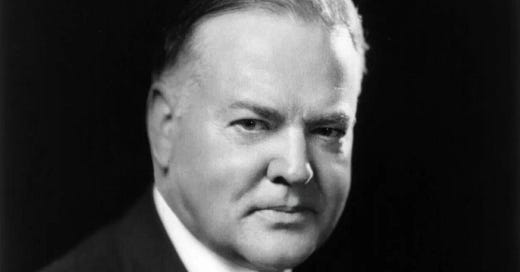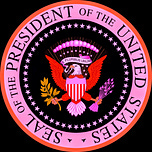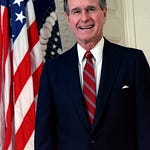August 1914. The woman, like every American thronging the ballroom in London's Savoy Hotel, wanted to get home. Like the rest of them, she couldn't pay for passage home because banks weren't cashing foreign letters of credit. Like the rest, she was stuck in Europe as war overtook it. Like the rest, she feared German U-Boats. But unlike any of the rest, she was demanding a guarantee that her ship would be safe from submarines.
What should Herbert Hoover do? Hoover, who had organized and put himself in charge of a volunteer group of American businessmen in London for the assistance of American travelers. Should he lie, as he had starting this mission, when he claimed the support of the American ambassador in London?
Herbert Hoover was comfortable lying. It had helped him to his great success. Trained as a mining engineer at Stanford, he had quickly become a mine manager, an overseer who was good at eliminating waste, boosting efficiency, and getting the most work out of the fewest men. He took more credit than he deserved for the discovery of productive lodes. He was comfortable lying about output to hoodwink investors. Put in charge of his company's China operation, he blatantly lied to the Chinese board in order to consolidate power with his foreign employer. Now an independent consultant with a fine home in London, he was a specialist in whipping ailing mining operations back into shape.
Lying had helped him make millions of dollars, but he had found to his surprise that making millions was not enough for him. He longed to use his skill at correcting inefficiency and incompetence on a larger field of action. Larger even than helping stranded Americans get home.
Hoover regarded the woman. She was clearly used to getting her way, but so was he. Never a warm man, he was truculent, tactless, blunt and prone to tantrums. He was both admired and loathed for these qualities. But no one could deny they were effective. As was his casual disregard for the truth.
Herbert Hoover took a piece of paper and wrote out the requested pledge: no U-boat would sink the woman's ship. His reasoning was simple. If the ship went unscathed, the promise would be kept. If a U-boat sank her vessel, she would be dead and the dead don't complain. At the bottom, he signed his name.
It wasn't just that Hoover lied. Reality made little impression on him. During the war, he headed the Commission for the Relief of Belgium. He raised millions of dollars, organized supply lines, negotiated with multiple governments, and fed more than a million Belgians. Once the U.S. entered the war, President Wilson put him in charge of the U.S. Food Administration. Hoover imposed strict regulation on the entire food system, managing farms and markets and restaurants and America's housewives to feed not only American citizens and troops, but Allies as well. Later, he claimed that both these efforts were the result of pure volunteerism. This too was a lie. In the Belgian operation four out of every five dollars spent came from European governments, and the American Food Administration depended on Congressional funds. But Hoover's rigid ideology had no way of incorporating this fact.
So too with his other great humanitarian effort, the relief of the people displaced and ruined by the Mississippi Flood of 1927. Two out of every three dollars he spent in housing and feeding the victims came from government sources, but he claimed the effort as a triumph of volunteerism. He could have called in the Army, he said, but "all I had to do was call in Main Street."
In 1928, Main Street swept him into the presidency. Unemployment was at 3%, the bull market was going strong, and the nation loved the idea of an efficient technocrat at the helm. At first, it seemed to go well. His beliefs were more moderate than his ideology; in fact, many believed him to be a Progressive. He favored high wages, reasonable unions, a shorter workday, estate taxes, and equal pay for women. He passed a farm bill that offered loans to aid farmers in marketing. He backed the creation of the National Institutes of Health and convened conferences on child welfare and housing. He set up the Veterans' Administration, cancelled oil leases on public land, and started work on storing water for the West with what would come to be called Hoover Dam.
And then came the crash. On Black Tuesday, October 29, 1929, $30 billion of paper assets evaporated. Hoover leaned into his time-honored approach: say it isn't so.
Hoover lied, because he was convinced that lying was the right solution, that he could lie his way out of the fiscal emergency. He truly believed that the crisis was one of confidence, that the Depression could be addressed by talking people out of being depressed. So he doctored the statistics to show that things weren't all that bad. He named the financial slump a "depression" because that sounded more fixable than "panic." Convening a group of business leaders, he tried to convince them not to lower wages or fire workers, in order to build confidence.
But when someone is a regular liar, they can't build confidence by lying. People refused to ignore the evidence of their own eyes. When Hoover opposed offering what he called "dole," because "thanks to the sense of social responsibility in the Nation, our people have been protected from hunger and cold," no one believed him. They could see people sleeping in parks and shantytowns--soon called Hoovervilles. They could see people standing on breadlines. They could see children going without food.
In 1930, 600 banks failed. Bankers and financiers requested government intervention. Hoover instead talked them into setting up the National Credit Corporation, attempting to solve the problem with a voluntary association amongst themselves. But banks are profit-driven institutions, not charities, and they were unwilling to bankroll risky prospects. In 1931, 2300 banks failed. That year, Hoover declared in a radio address that "victory over this depression and over our other difficulties will be won by the resolution of our people to fight their own battles in their own communities, by stimulating their ingenuity to solve their own problems." The government, like God, helps those who help themselves.
The last straw for the nation came when thousands of veterans arrived in Washington to protest Congress's refusal to pay them their bonuses early. When Congress refused to capitulate, "Bonus Marchers" set up a protest encampment. Some occupied vacant government buildings. Falsely claiming that the Bonus Marchers consisted of "Communists" and "hoodlums and ex-convicts determined to raise a public disturbance," Hoover ordered Army troops, under General Douglas MacArthur, to clear them out of government buildings. MacArthur went further, clearing the entire encampment using tanks and tear gas. The image of Hoover's troops attacking veterans appalled the nation. It seemed an apt symbol for a president who seemed to have turned on his own people.
In the 1932 election, Hoover was shocked at how completely his support had evaporated. People pelted his presidential train with tomatoes. They pulled up the stakes of the tracks. The Secret Service foiled efforts to dynamite the train. In the end, Hoover won only six states. His distress at losing the presidency might be the most emotion Herbert Hoover ever showed.
He left the White House and began his final phase as an embittered memoirist and political commentator, untethering himself even more thoroughly from truth. He blamed the Depression on Europe, on communists, on immigrants, and on the Democratic Congress. He ranted that the New Deal represented a turning point in history and a rejection of the "American system." He branded it socialist, fascist, totalitarian and godless. Though never much of a practitioner of the Quaker faith in which he was raised, he claimed his brand of individualism to be the only true Christianity. Traveling to Europe, he met with Hitler, and called him less dangerous than FDR.
Today, Herbert Hoover consistently ranks as one of the worst American presidents, even though, had he not had to deal with the Depression, he may have turned out to be a fairly effective leader. In many cases, he accomplished great things. But it's almost impossible to recognize them anymore. On the one hand, there's the fog of his lies. On the other hand, there's the historical image of Hoover as a do-nothing president who failed to deal with the Great Depression. According to him, he's a hero, and according to history, he's a villain. No doubt the truth is somewhere in between. But what Herbert Hoover never realized is that lying is a two-way street. Lie enough about history, and history may lie about you.














Share this post